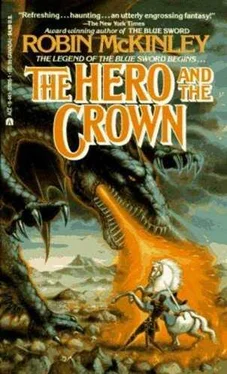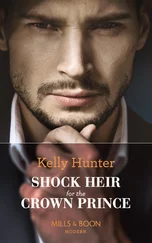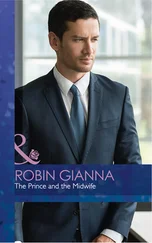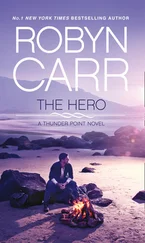“Here we are, I believe,” Tor said. She dropped his hand so that he could attend to the lock, one of the small magics she had never been able to learn. He muttered a moment, touched the door in five places, and the door slid open.
A blast of grief, of the deaths of children, of crippling diseases that took beauty at once but withheld death; of unconsummated love; of love lost or twisted and grown to hate; of noble deeds that proved useless, that broke the hearts of their doers; of betrayal without reason, of guilt without penance, of all the human miseries that have ever occurred; all this struck them, like the breath of a slaughterhouse, or the blow of a murderer. Tor fell to his knees and covered his face with his hands, and the beasts cringed back, moaning. Aerin put out her hand, leaned against the doorframe; just this she had feared, had half expected; yet the reality was much worse than what her tired mind had been able to prepare her for.
Greetings, said Maur’s head. I did not think to have the pleasure of seeing you again.
It is you, responded Aerin. She opened her mouth to gasp, and despair rushed in, bitter as aloes. Tears filled her eyes, but she pushed herself away from the threshold and bent slowly and carefully to pick up the candle Tor had set down before he opened the door. She shook her head to clear her vision, held the candle aloft, and stepped inside the high vaulted room, despite the silent keening of the air. I know despair, she said. There is nothing more that you can show me.
Oh?
The keening changed tone and madness edged it, drifted across her skin, fluttered in her hair like bats’ wings; she ducked, and the candle guttered and almost went out. Maur laughed. She remembered that silent hollow laugh.
Angry, she said: Nothing!
“Aerin,” a voice said hoarsely behind her: Tor. “Light my way—I cannot—see you.” The words dragged out of him as he dragged himself to his feet. “This—is why—we’ve been—so—tired—all along.”
“Yes.” The sibilant hissed in the silence like adders’ tongues, but Aerin’s anger made a small clear space around her, and her beasts crept to her feet and breathed it gratefully, and Tor staggered to her like a man crossing a narrow bridge to freedom, and put an arm around her again, but this time it was for his own comfort.
“Tor,” she said calmly, “we must get rid of Maur’s head. Get it out of the City.”
Tor shook his head slowly; not in refusal but confusion. “How? It is too huge; we cannot lift it. We must wait ....”
Wait, snickered Maur’s head.
“No.” Aerin looked around wildly. The reek of despair stilt tingled in her nostrils and in her brain, and her anger was ebbing. She had to think. How?
“We can roll it,” she said at last. “It’s roundish. We can roll it downstairs, and then downhill—out of the City gates.” She thrust the candle at him. “Hold this.”
She walked purposefully up to the low platform where Maur’s skull lay; the shadows in the eye sockets glinted. Her beasts came after her, clinging to her shadow; and Tor came behind them, just clear-headed enough to hold the light high, and to watch Aerin.
She set her shoulder in one of the ridged hollows at the base of the skull and heaved. Nothing happened but that Maur laughed louder; its laughter crashed in her head like thunder, and her vision was stained red. Then Tor found a niche for the candle and came to help her; they heaved, and heaved again, and barely the massive skull rocked on its base. Then her beasts came, and clawed at the thing, and chipped their teeth on it; their lady’s anger and their own fear gave them a wild frenzy, and the skull shuddered where it lay, but they could stir it no further, and Aerin cried at last, “Peace!” and laid her hands on her loyal friends. They calmed under her touch, but they panted where they sat, even the cats, the curved white fangs glinting in the dim light. The candle was burning low.
“It’s no use,” said Tor heavily. He was still leaning against the skull, pressed up against it as if he loved the touch of it; Aerin grabbed him by the shoulder and yanked him away, and he staggered. He blinked at her, and a little more of Tor crept back into his eyes, and he almost smiled, and with his sleeve he rubbed his face where it had lain against the skull.
Are you finished yet? inquired Maur’s head.
No, said Aerin fiercely.
I’m glad. This is the finest amusement I’ve had since you fled the banqueting-hall. Thank you for opening the door, by the way. Your folk by the City gates should taste me quite clearly by now.
You shall not bully me again! Aerin said, and, almost not knowing what she did, pulled Gonturan free of her scabbard and slapped the flat of her across the base of Maur’s head where once the backbone had joined. Blue fire leaped up in sharp tongues that lit the entire vault, with its many shelves and cupboards and niches, and doors into further strongrooms. It was a ghostly unhealthy color, but the skull shrieked, and there was a crack like a mountain splitting, and the skull fell off its pedestal to the floor.
Aerin hurled herself at it as it was still moving, and grudgingly it rolled another half turn; but as it fell, the thickness of the despair pressing around them weakened suddenly, and with something like hope again Tor and the beasts shoved too, each as they could; and it moved another half circumference. The moon was high by the time they reached the courtyard, for they could not take the most direct way—the size of the skull precluded all but the widest corridors. The night wind was cold, for they were sweating hard with their labor; and the moon became two moons as Aerin’s tired eyes refused to focus. Tor had found rope, and they had tried to drag the thing, but that had worked even less well than rolling it, so they went back to the rolling. It was not nearly round, and it progressed in lumbering half-circle flops, and each flop jarred Tor’s and Aerin’s muscles painfully; and they had been painfully tired before they began.
“We must rest,” murmured Tor.
“Food, “said Aerin.
Tor roused himself. “Bring some. Wait.”
The slightly moldy dry bread and more than slightly moldy dry cheese he found gave them more strength than they would have thought possible. “Second wind,” said Tor, standing up and stretching slowly till his spine cracked.
“Fourth or fifth wind,” said Aerin grimly, feeding the end of her cheese to her beasts; “and the strength of panic.”
“Yes,” said Tor, and they put their shoulders to the work again, the grim echoes of bone against rock ringing terribly in the dark empty City. Depression still gnawed at them, but in a curious way their weariness worked to their advantage, for depression often went with weariness, and so they could ignore the one as a simple unfearsome result of the other. Maur had lost its ascendance once Gonturan had struck it, and while the skull still stank, it seemed almost an organic stench now, under the open sky; no more than the faint rotting smell of ancient carrion.
It was a little easier once they reached the king’s way; each heave grew a little less, the fall-over a little hastier, and the crash a little more forceful. Then it began almost to roll; for each circle it lurched seriously twice, but it did not quite come to a complete halt each time; Tor and Aerin needed only to push with their hands. Both Aerin’s shoulders were raw beneath her tunic, and there was a long shallow cut along her jaw where one of the dragon’s ear spines had caught her briefly; and the old cut on her palm from Gonturan’s edge throbbed dimly.
Then, just above the City gates, the vast head broke away from them. It was not merely the incline, which was little greater now than it had been down most of the slope behind them; it was Maur’s final moment, and Aerin heard its last scream of gleeful malevolence as it plunged down the road.
Читать дальше












